Canada needs a national strategy for security, trade, and economy to contend with Trump, say political science experts
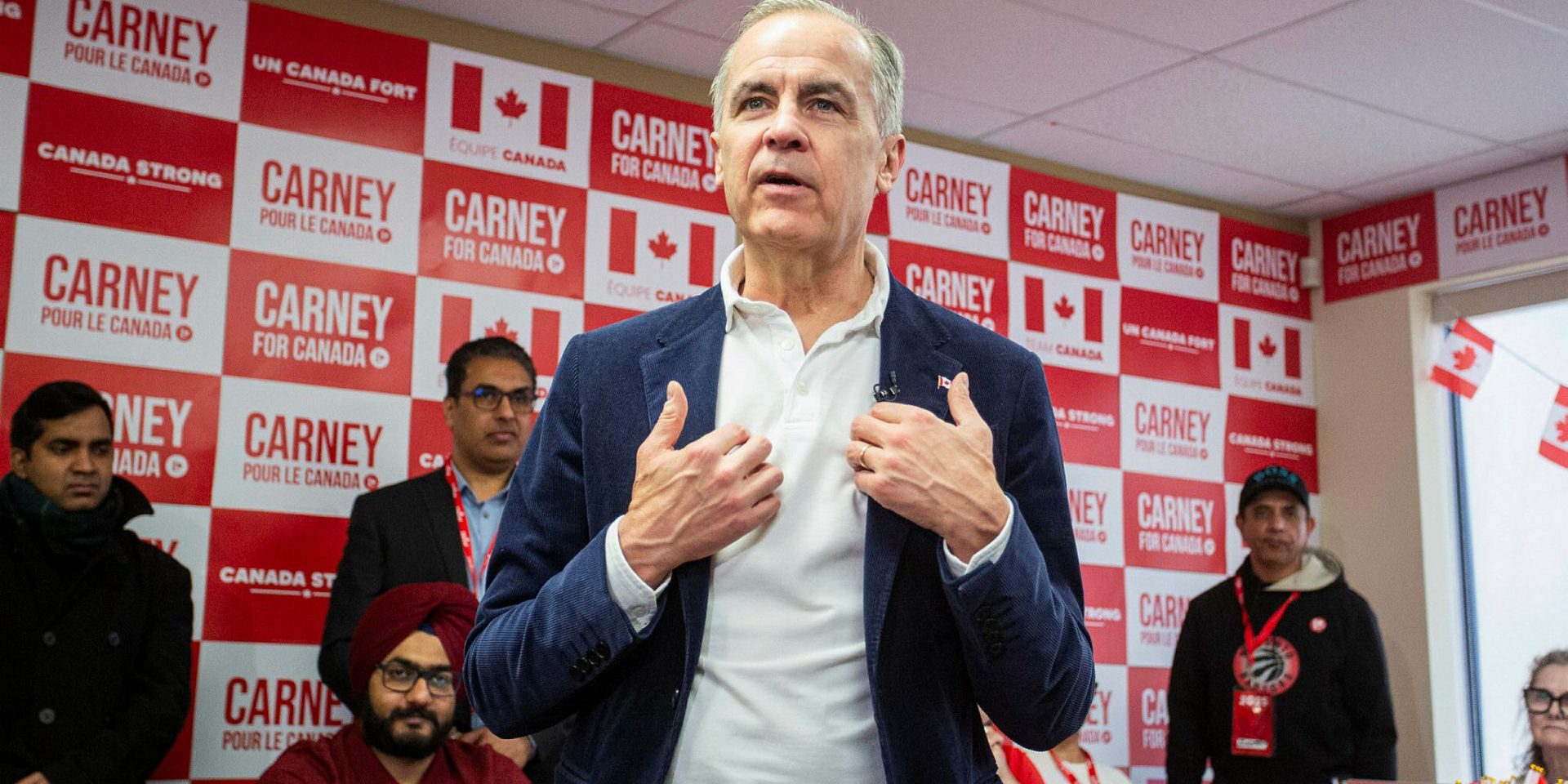
Securing Canada’s future in the face of the administration of United States President Donald Trump requires a national strategy that encompasses trade, security, and long-term economic thinking, say political science professors and other academics who argue this country is facing its greatest challenge in decades.
“I think we need—once we have a new government—to launch commissions or a national discussion about both economic policy and national security,” said Daniel Béland, a McGill University political science professor and director of the McGill Institute for the Study of Canada.
“Trade is just one piece of the puzzle. We need to rethink our economic strategy, and I think both the main parties—the Conservatives [and] the Liberals—they both recognize that we need to increase our productivity, that we need to, of course, eliminate internal trade barriers.”
Béland told The Hill Times that, in response to the Trump administration, Canada will need to emphasize east-to-west trade corridors, and will also need to rethink its “fiscal and economic policies, innovation policy, the knowledge economy, [and] internal trade,” as part of a broader strategy.
Trump represents a “seismic shift” for the world, and requires a national policy “that aligns with the realities of the 21st century,” according to an open letter released on March 24, authored by Jörg Broschek, a political science professor at Wilfrid Laurier University; Erick Duchesne, chair of Université Laval’s Political Science Department; Blayne Haggart, associate professor of political science at Brock University; and Patrick Leblond, associate professor and holder of the CN-Paul M. Tellier Chair on Business and Public Policy with the University of Ottawa.
The letter, signed by Béland and 97 others representing fields including political science, economics, and law, urges Canada’s next prime minister to call for a royal commission to “forge a bold new socioeconomic model.”
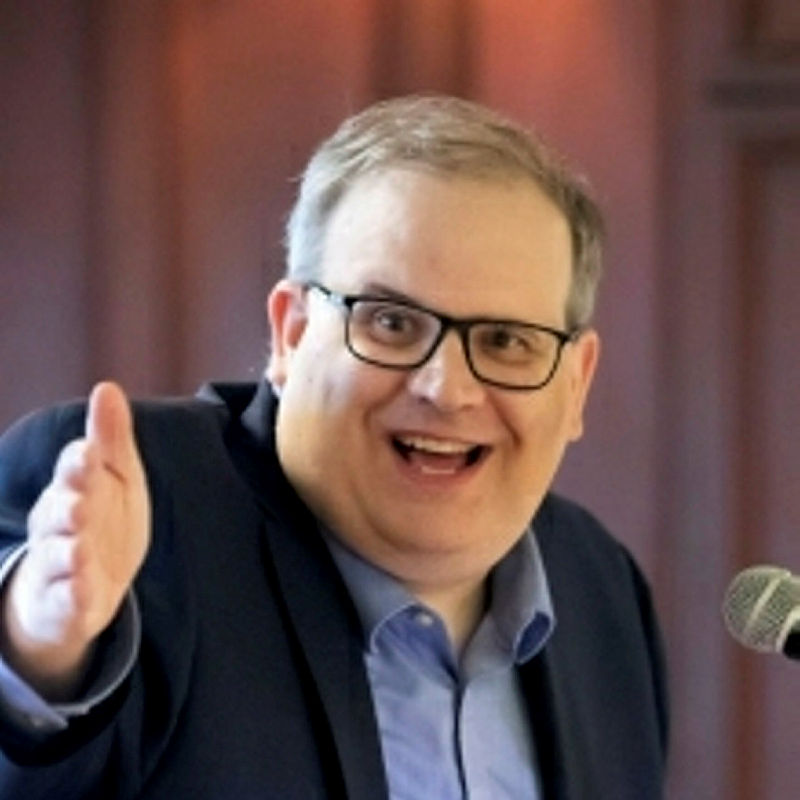
“First, a royal commission needs to envision a new policy architecture that aligns all major sectors in [a] way that protects us effectively from geopolitical and climate-related threats. Second, it must forge bold proposals to overhaul our governance architecture, ensuring effective and legitimate co-ordination and collaboration among all stakeholders,” reads the letter. “A royal commission on securing Canada’s future is not optional. It is essential.”
Besides trade and the economy, the other major strategic pillar is national security, according to Béland.
“Canada needs to catch up in terms of military spending,” he said. “It also needs, I think, to reinforce its security ties with European partners, in part because—again—it’s really hard to fully trust the Trump administration in many areas.”
Nikolas Barry-Shaw, trade and privatization campaigner for the Council of Canadians, told The Hill Times that Canada definitely needs a national plan.
“It took a while for our political leadership to catch on, but I think once the intransigence and the belligerence of Trump became obvious, and once … the reaction of the Canadian people overwhelmingly rejecting those threats, and making it clear over time that they were ready to resist by any means available, that forced a change of discourse and a change of stance,” he said. “One thing we should be thankful for in this crisis is the opportunity to rethink the economic development model that we’ve adopted.”
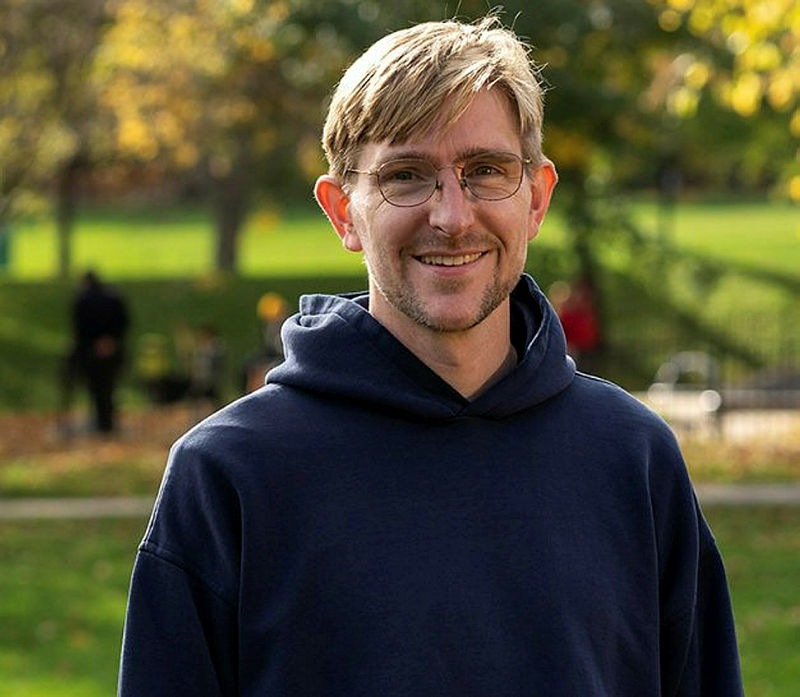
Barry-Shaw argued that Canada should consider implementing a public sector-led development model and building out the economic sectors needed for the transition away from fossil fuels, as well as building out public sector alternatives for telecommunications so that Canadians don’t need to rely on a U.S. firm like Starlink Services, a wholly-owned subsidiary of American space technology company SpaceX.
He also said a social protection strategy is needed for Canada’s employment insurance system to ensure that workers affected by the current trade war are covered.
“This is something that, again, goes back to the 1990s when we basically decimated our employment insurance system, and now we have just a small fraction of unemployed workers who ultimately qualify for benefits. That has to change,” he said.
“They have to make some emergency changes to that program so that workers can continue to put food on the table if they’re affected by these tariffs. It’s going to hit a lot of people, even in industries that aren’t directly export-oriented, but by people who happen to live in the town where the aluminum plant shuts down, and you’re a secretary or you’re a waitress, and you’re out of a job.”
David Pratt, a former defence minister in the Paul Martin Liberal government and current principal of David Pratt & Associates, said there’s no question that dealing with Trump would require a national strategy, and a lot of “fortitude and determination” to carry it through. He said Ottawa is, so far, on the right track.
“They’ve put together a support package for affected industries, which I think is absolutely critical. They’ve attempted to explain to senior U.S. administration officials how damaging these tariffs are going to be, not just for the Canadian economy, but for the U.S. economy as well,” he said. “They’ve been lobbying members of Congress, the Senate and the House of Representatives, which I think is absolutely critical.”
When asked about the importance of Canadian unity as part of a national strategy, Pratt said there is tremendous unity, at least in terms of the Canadian people.
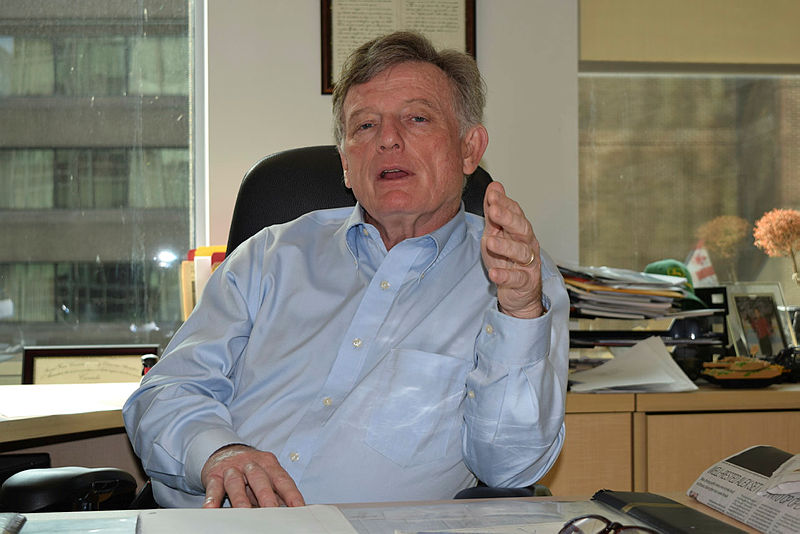
“The Trump situation has prompted a groundswell of patriotism and flag waving and a desire to protect our interests and values as a country,” he said.
When it comes to unity among the provinces and territories, Pratt cited recent efforts to remove interprovincial trade barriers as a positive step.
In response to escalating trade tensions, the premiers agreed to reduce barriers to internal trade and labour mobility across the country, allowing goods, services, and workers to move more freely, according to a first ministers’ statement released on March 5. Ontario Premier Doug Ford told reporters that legislation to address internal trade barriers would be among his first order of business when the province’s legislature resumes this month, as reported by CBC News on March 27.
“As far as the provinces are concerned, we’ve seen a willingness to eliminate trade barriers between the provinces, which I think is, again, absolutely long overdue in the first place, but absolutely welcome, I think, by so many professionals who will be able to work across the country without having an accreditation questioned,” Pratt said. “Do we have absolute unanimity across the provincial premiers? No, unfortunately.”
Pratt calls Alberta Premier Danielle Smith an outlier.
“I’m not sure that she’s properly reading the mood of the population at all here, and seems to be determined to protect Alberta’s interests at all costs, and rest of the country be damned as far as she’s concerned,” he said.
Smith has faced criticism in recent weeks following a March 8 interview with right-wing media outlet Breitbart News. During the interview, the premier said that “unjust and unfair tariffs” had boosted Liberal support in Canada, and that she has asked Trump administration officials to “put things on pause” until after the election. Smith also faced some backlash for travelling to Florida to attend a PragerU East Coast Gala event on March 28, where she joined Ben Shapiro, a controversial U.S. right-wing political commentator and podcaster, for a fireside chat. In a December 2024 podcast, Shapiro said he felt Canadians would “greet us as liberators” if the Trump administration were to follow through on threats to annex the country.
Alberta NDP Leader Naheed Nenshi accused Smith of being “more than happy to placate Trump during the worst economic crisis facing our country than she is willing to work with Canadians,” in a March 23 post on X.
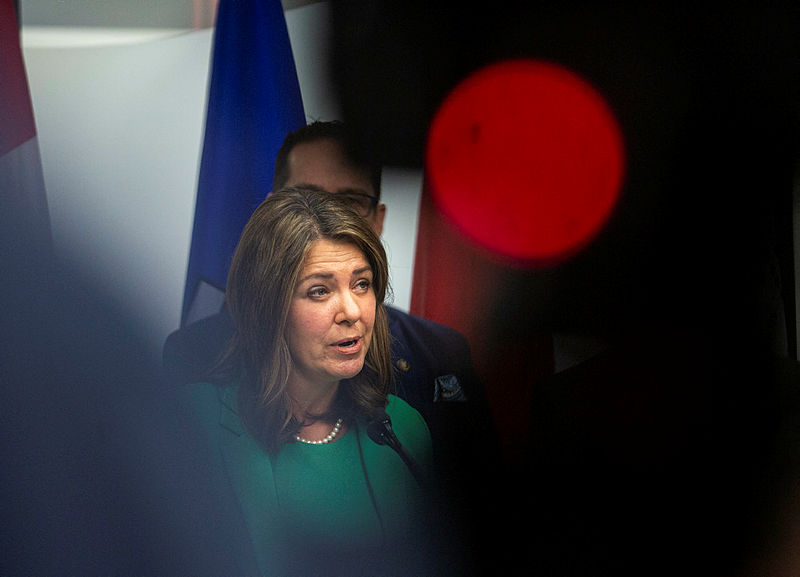
Smith responded to her critics during a session in the Alberta Legislature on March 26, where she argued she had been “fiercely criticized for going into the lion’s den” to try to change the minds of Americans about tariffs. She also accused Prime Minister Mark Carney and Nenshi of trying to “frighten and divide Canadians.”
“Now, all of a sudden, it is treason to talk to American media personalities that we disagree with. It is disloyal to try and persuade high-profile Republicans holding influence with the president to abandon his tariff policies on Canada. Indeed, it is a high crime to try and convince U.S. officials to refrain from imposing tariffs until after our country has an elected leader with a strong mandate,” Smith said in her statement to the Legislative Assembly. “I will not be silent. Alberta will not be silent.”
Canada needs to ‘do more and be more autonomous’ in intelligence gathering, says professor
Carney told reporters on March 25 that he has a responsibility to plan for the worst, and that “part of that response is to be more and more Canadian in our defence capabilities.” He made those remarks a day after it was reported by news outlets that U.S. Secretary of Defence Pete Hegseth and U.S. Vice-President J.D. Vance leaked war plans for upcoming military strikes in Yemen through a Signal group chat, which included Jeffrey Goldberg, the editor-in-chief for The Atlantic magazine.

Stephanie Carvin, associate professor of international affairs with Carleton University, said that, when it comes to intelligence gathering, Canada should be doing more, and it should be more autonomous.
Last year, then-U.S. president Joe Biden ordered his national security team to establish working groups to monitor a campaign by Russia that involved targeting the U.S. and Europe for sabotage, disinformation and cyberattacks. However, under the Trump administration, several American national security agencies have since halted that work, according to a report in Reuters on March 19, which cited as sources 11 current and former U.S. officials who requested anonymity.
“The U.S. has reduced its intelligence collection on Russia. It has basically eliminated all of the security and intelligence around electoral integrity, and so there are going to be some gaps there that may need to be filled. And Canada has a particular interest in the Arctic, especially vis-à-vis Russia, so this may be something that we need to actually focus on,” said Carvin.
“Canada does have a lot of intelligence co-operation outside of the Five Eyes that I think is not as well known. We do a lot with the Dutch. We do a lot with other European countries, but also I think we should be building capacity in the Indo-Pacific.”
On March 11, the U.S. resumed military aid and intelligence sharing with Ukraine after delegates from Kyiv agreed to a White House proposal for a 30-day interim ceasefire with Russia.
Maria Popova, an associate professor of political science at McGill University, told The Hill Times that if the U.S. were to cut Ukraine loose, the country would continue resisting Russia’s invasion with European assistance.
Ukraine domestically produces almost 50 per cent of the military equipment that it needs to fight, and with Europe’s help, the loss of the 25 per cent that the U.S. provides “can be bridged somewhat,” she said in an emailed statement on March 31.
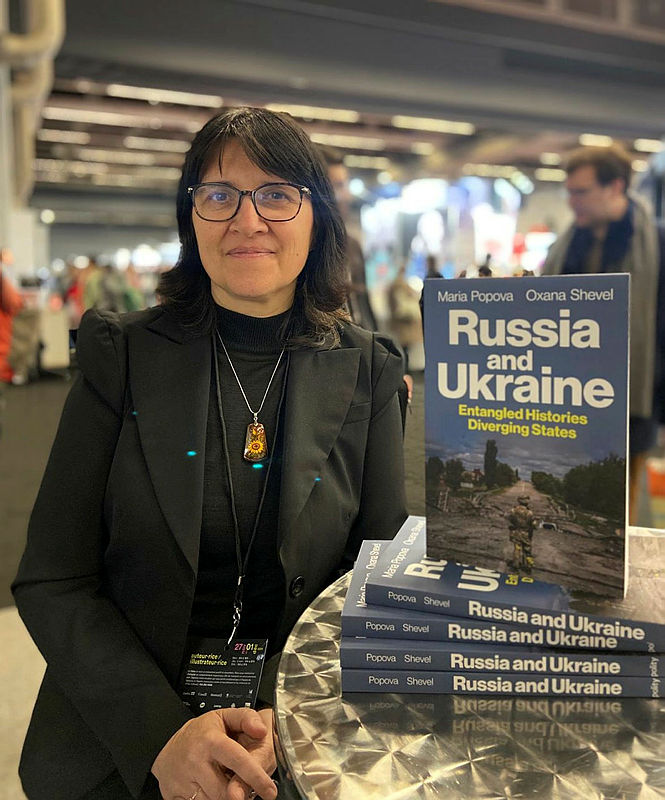
“The biggest challenge would be the potential loss of American intelligence, but Ukraine will not submit to Russia’s currently maximalist demands of de facto capitulation and loss of sovereignty just because the U.S. walks away,” she said in the email.
The bigger danger, Popova argued, is if the U.S. doesn’t simply walk away, but actively helps Russia in its war against Ukraine and Europe.
“Unfortunately, given the dramatic pivot to Russia and the shocking channelling of Russian disinformation by Trump administration officials, we cannot rule this scenario out,” she said in the email. “If the U.S. does band with Russia, the urgency will significantly increase for Europe to step in and help Ukraine, not simply with indirect aid, but with manpower and with a new level of sanctions against Russia, including the full confiscation of its frozen assets.”
jcnockaert@hilltimes.com






 LICENSING
LICENSING PODCAST
PODCAST ALERTS
ALERTS













